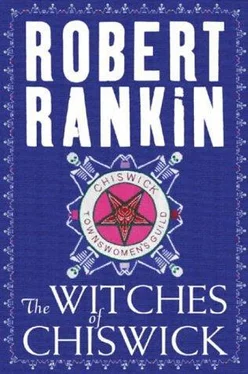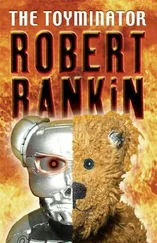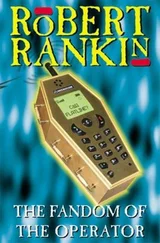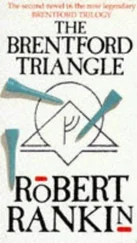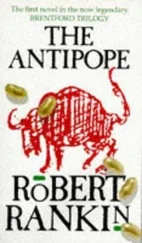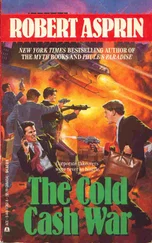“I’ve never had cause to doubt it,” Will eased his arm from beneath the pressure of his pater’s portly palm, “except upon one or two occasions, such as the time that you tried to sell me to Count Otto Black’s Circus Fantastique because you needed money to buy Mum a new wig.”
“A God-feeling woman can never have too many wigs,” said Will’s mum, downing another fried eggette.
“It’s God- fearing ,” said her husband, helping himself to yet another sausage. “But your mother’s right, Will. Do you recall the time that your Aunt May was caught wigless at the wedding of a tribal chieftain? That reflected very poorly on the family.”
“Yes, but trying to sell me to a freak show …”
“A Carnival of Curiosities,” said Will’s mum, downing yet another eggette. “An Odyssey of Oddities. A Burlesque of the Bizarre. A—”
“Get out while you’re winning,” said Will’s dad. “Your mother and I felt that it was the right thing to do, Will. So you could, you know, be amongst your own people, as it were.”
“But you’re my own people, you’re my family.”
“You know what I mean,” said Will’s dad, chasing baked beanettes with his fork. “I don’t have to say the word, do I?”
“ Slim ?” said Will. “Is that the word?”
Will’s mum traced a sacred S (for Sainsbury’s, not for slim) across the vastness of her breasts. Newly proffered coffee spilled over Will’s dad’s waistcoat.
“Now look what you’ve done.” Will’s dad struggled to his feet, plucking at his steaming front.
“I’m slim,” said Will. “It’s not a disease. It’s not something to be ashamed of.”
Sadly, however, this was not the case. In these days after the days after tomorrow, being slim no longer held sway when it came to looking good. These were now the days of the weighty. That mankind should grow, not only in mental but in physical stature too, was probably an inevitability (although not one that had ever been accurately predicted). But then, the science of prediction had never been noted for its accuracy – not even when the course of future events seemed obvious.
For instance: in the year of Elvis Presley’s death, nineteen seventy-seven, there were, at most, several dozen Elvis impersonators in the world. By the year two thousand and two, however, there were more than thirty-five thousand. Given this expanding growth rate, it was accurately predicted that by the year two thousand and twelve, one in four people on the planet would be an Elvis impersonator.
This, of course, proved not to be the case.
The figure was actually a mere one in six.
But those days were now long in the past, and in these days, after the days after tomorrow, things were not as might have been expected. They appeared to have escaped all attempts at prediction. That the future lay in fatness had certainly slipped right past Nostradamus.
By the days after tomorrow, the average weight of the Western human was fifteen stone. By the days after the days after tomorrow, the scales were being tipped and strained at the twenty-stone mark, and rising.
But Will was a slim ’un. And although his parents were proud of him, in the way that parents always are, the social stigma of slimness was always there.
And Will was very slim.
The features were fine enough – noble, almost: a good strong nose and bright blue eyes and a mop of blondy hair. But his neck was of a longness, and his fingers too. And there was also an awkwardness about him. And there was an other-worldliness about him too, although this was nothing to do with his slimness. It was more to do with the fact that Will dwelt for most of his waking hours in a world of his own making: a world of romance and adventure, a world where he could really take some risks.
For the world that Will inhabited was not very kind to Will. Folk pointed at him in the streets, laughed as they pointed, called him “skeleton boy” and “you slim bastard!” They gave him a very hard time. Will ate as much as he could manage, but it didn’t help.
It was no fun being different.
But different Will was, in more ways than one.
“I’m sorry, Dad,” said Will. “I’m sorry, Mum, too.”
The coffee was cooling on Will’s dad. Will’s mum mopped at his waistcoast with a proprietary-brand dishcloth. “It’s all right,” she said, without conviction. “It doesn’t matter, Will. You are what you is, as Frank Zappa once said, and so long as you’re happy, we’re happy for you.”
“I am happy, Mum. I love you and Dad and I love my job too.”
“Tell me about this job of yours.” Will’s dad shooed away his wife’s fussing fingers. “Is it at IKEA? Does it involve any two-by-one?”
“No,” said Will, “It isn’t and it doesn’t. Have you ever heard of the Tate Gallery?”
“Is that a trick question?” Will’s mum lowered her prodigious bulk once more onto her modified lounger and returned to her consumption of fried eggettes. There were still eight left on her plate and she meant to finish them before she began on her baconettes. “I mean, will there be a forfeit if we get it wrong? Like there is at the supermarket?”
“It’s not a trick question, Mum. The Tate Gallery is an ancient building in London Central. It houses paintings from the past. You remember art, surely?”
Will’s mum made a face of considerable perplexity. “Was he a presenter on daytime TV?”
“Of course your mother remembers art,” said Will’s dad, resuming the demolition of his sausage mountain. “It’s when pictures were produced by hand, using coloured pigments applied with a bundle of animal hair secured at the end of a stick.”
“There’s no need to be obscene,” said Will’s mum. “Honestly, putting ungodly ideas like that into the boy’s head.”
“It’s true,” said Will. “The bundles of animal hair were called brushes.”
“The boy is a regular hysteric,” said Will’s mum.
“Historian,” said Will’s dad. “And you have actually seen these pictures, Will?”
“Not up close.” Will, sipped at his coffee, which came as it came, but which was not altogether to his liking. “They are housed in the vaults deep beneath the original gallery. They are far too precious and fragile to be put on display any more. They are presently being re-photographed, so that accurate reproductions can be made and displayed in the gallery. You’ll be able to see the official reopening of the Tate on the home screen soon. And all the reproductions of the paintings too.”
“Why?” asked Will’s mum. “What are these paintings for? What do they do?”
“They don’t do anything. They are art. They are beautiful works of human achievement. You simply look at them and appreciate them for what they are.”
Will’s mum spooned in further eggettes. “Do they sing?” she asked.
“No. They don’t even move about.”
Will’s mum shrugged her ample shoulders. “Well, if you’re happy and employed, I suppose that’s all that matters.”
“I am happy,” said Will. “There’s something about the past that has always fascinated me. Something about the Victorian era.”
“The what ?” asked Will’s mum.
“Be silent, woman,” said Will’s dad, sending another sausage stomachwards.
“The years of Queen Victoria,” said Will. “She ruled this country, and much of the world besides, for sixty years. She died in 1901.”
“King Charles ruled for seventy-five years,” said Will’s mum. “And so did Queen Camilla.”
“I don’t think you could really call that ruling,” said Will’s dad, “although I’m impressed that you should know even that. I recall as a child learning about the last of the Royal Household of England. They didn’t actually rule that long – they didn’t actually rule at all. They were both assassinated at their coronation. It was a virtual reality programme that did all the subsequent ruling – until it crashed in the late twenty-first century.”
Читать дальше
